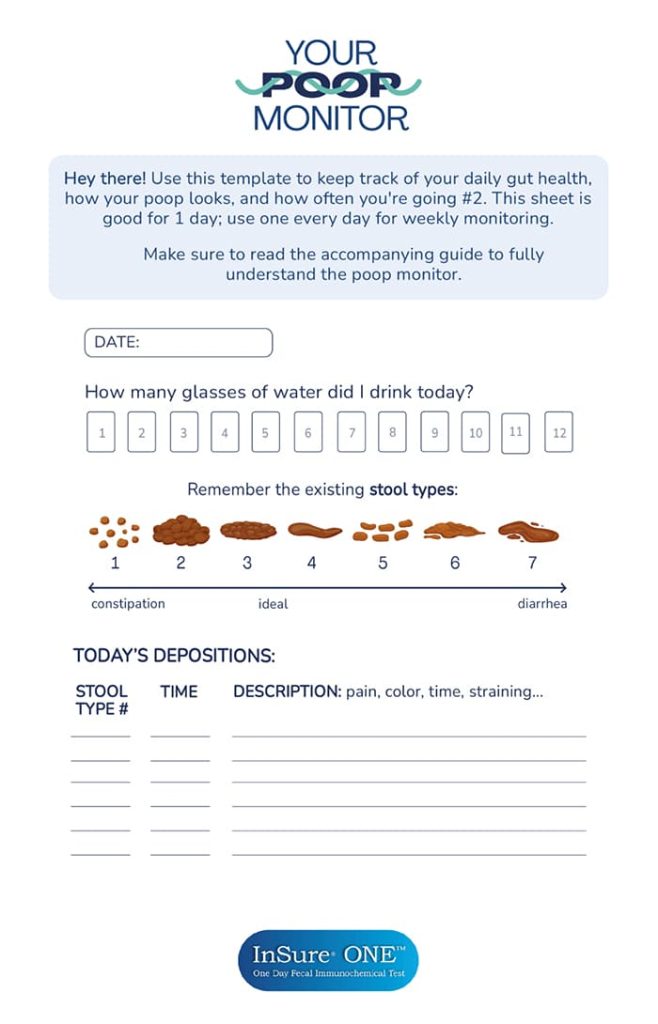Are you aware of the impact that the food you consume can have on your gastrointestinal (GI) health? Certain foods can support it by easing food’s passage through the GI system and fortifying the good bacteria that make up your gut. Others, however, can upset your GI system, causing bloating, gas, and poor digestion.
If you’re uncertain about how to enhance your gut health through food choices, we’ve gathered information on the 5 best and 5 worst foods for gut health, along with scientific research explaining their potential benefits or negative effects.
The Best Foods for Gastrointestinal Health
The best foods for GI health support the bacteria in your gut, which play a crucial role in preventing inflammation, infection, and aiding in digestion. These bacteria are essential for your overall well-being, so it’s important to consume foods that nourish them. The following 5 foods excel in supporting gut health.
Fermented Foods
Fermentation, a preservation method involving bacteria and yeast, results in the production of live bacteria known as probiotics. Consuming fermented foods provides your body with these beneficial bacteria, which play a key role in supporting gut health.
In fact, probiotics offer the potential to restore normal bacterial composition, meaning if there is an imbalance in the bacteria in your gut—causing symptoms such as constipation, diarrhea, skin rashes, sugar cravings, bloating, or heartburn—probiotics can correct this imbalance and potentially mitigate these symptoms.
Some examples of fermented foods include:
- Kefir
- Yogurt
- Sauerkraut
- Kimchi
Leafy Greens
Leafy greens are continually rated as one of the best foods for your GI health because they’re high in fiber, which increases the size of your stool and softens it, making it easier to pass and decreasing the likelihood of constipation. On the opposite end of the spectrum, fiber can also help solidify loose, watery stools since it absorbs water, which can then prevent diarrhea.
In short, fiber can help keep your bowel movement regular.
Leafy greens are also rich in vitamin C, vitamin K, folate, and vitamin A, and they contain a specific type of sugar that fuels healthy gut bacteria.
Whole Grains
Another great source of fiber comes from whole grains. Even more, when bacteria ferment fiber, they produce omega-3 fatty acids, which encourage proper function in the cells lining our colon.
Colorful Foods
Colorful foods are rich in polyphenols, compounds that fight inflammation and protect cells from damage. Specific to GI health, polyphenols encourage good gut bacteria to grow, fight “bad” bacteria like E. coli, and reduce symptoms of GI disorders such as peptic ulcers and inflammatory bowel disease (IBD).
Low-Fructose Fruits
Fructose, or fruit sugar, can contribute to gas and bloating. Because of this, low-fructose fruits, such as citrus fruits and berries, are often better for your GI system because they are easier to tolerate and less likely to cause gas.
Bananas, in particular, are a low-fructose fruit with an added benefit: they contain inulin, a substance that encourages good bacteria in the gut to grow.
Add More GI Health-Boosting Foods
The best way to incorporate these foods for GI health into your diet is by having them on hand and visible. In many cases, having better food choices within easy reach makes you more likely to opt for them. So, stock up on colorful fruits and veggies and cut them up (if that’s how you like to eat them) so you can quickly grab them.
Additionally, take this as an opportunity to try new tasty recipes. Who knows, you might just find a new favorite!
The Worst Foods for Gastrointestinal Health
While these foods are categorized as the worst for GI health, that does not make them all “bad” foods. Some of them are even healthy, especially for those with specific nutritional needs. However, for those looking to improve their gut health or anyone with GI conditions, these foods can harm the bacteria in your gut and cause bloating, gas, constipation, or diarrhea.
Red Meat
While meat offers many health benefits, namely as a rich source of protein, having a diet high in animal protein may alter your gut microbiome and increase your risk of inflammatory bowel disease (IBD).
Red meat, in particular, has been shown to raise levels of trimethylamine N-oxide (TMAO), a byproduct of gut bacteria that increases inflammation and the risks of stroke, heart attack, and colon cancer.
Fried Foods
Fried foods are high in saturated fats, which can be difficult for your digestive system to digest and may lead to heartburn or stomach upset.
Highly Processed Foods
While most foods involve some processing, the more a food is processed, the more it contains salt, sugar, and trans or saturated fats. All of these compounds can hinder gut health by influencing the gut microbiome.
Examples of highly processed foods include:
- Many breakfast cereals
- Sweet desserts
- Deli meats
- Many packaged snacks
- Ready-made meals
Foods Containing Antibiotics
Animals are often treated with antibiotics to reduce the risk of serious infection, but antibiotics can harm the helpful bacteria in the gut, creating an imbalance.
High FODMAP foods
FODMAP is an acronym encompassing foods that can cause GI problems in those with bowel issues, such as irritable bowel syndrome.
Examples of high FODMAP foods include:
- Fruit juices
- Processed foods containing sorbitol, high fructose corn syrup, and other artificial sweeteners
- Honey
- Agave
- Jam
- Hummus
- Relish
However, it’s possible to be sensitive to only some high-FODMAP foods, meaning you don’t need to remove them all from your diet.
Healthier Alternatives and Suggestions
To improve your gut health, it’s often best to avoid the above foods when possible and opt for an alternative. For example, while red meats are not recommended for GI health, you can opt for fish or plant proteins instead. If you can’t give up red meat, choose leaner cuts (Hint: look for names that include loin, round, or sirloin).
As for minimizing consumption of processed foods, try to consume as much whole food, or foods as close to their natural state, as possible. For example, choose an apple instead of apple juice or applesauce.
Eating For Gut Health
One of the biggest misconceptions about gut health is that you need to follow a really restrictive diet, and that’s not true. Some people may feel better when they avoid certain foods, but this may not be the case for everyone.
It’s important to remember that every body is unique, so the best thing you can do for your GI health is consult with a healthcare professional to receive personalized advice. They can help you determine which foods to avoid and which to add based on your symptoms. You may be surprised about the difference you see when cutting out just one food and adding in a bunch of others.
References
Verna, E. C., & Lucak, S. (2010). Use of probiotics in gastrointestinal disorders: what to recommend?. Therapeutic advances in gastroenterology, 3(5), 307–319. https://doi.org/10.1177/1756283X10373814
Family Physician Shares Signs of Poor Gut Health | Piedmont Healthcare. (2024). Piedmont.org. https://www.piedmont.org/living-real-change/signs-of-poor-gut-health
Hanson, B. T., K. Dimitri Kits, Löffler, J., Burrichter, A. G., Fiedler, A., Denger, K., Frommeyer, B., Herbold, C. W., Rattei, T., Karcher, N., Segata, N., Schleheck, D., & Loy, A. (2021). Sulfoquinovose is a select nutrient of prominent bacteria and a source of hydrogen sulfide in the human gut. The ISME Journal, 15(9), 2779–2791. https://doi.org/10.1038/s41396-021-00968-0
Costantini, L., Molinari, R., Farinon, B., & Merendino, N. (2017). Impact of Omega-3 Fatty Acids on the Gut Microbiota. International journal of molecular sciences, 18(12), 2645. https://doi.org/10.3390/ijms18122645
Wang, X., Qi, Y., & Zheng, H. (2022). Dietary Polyphenol, Gut Microbiota, and Health Benefits. Antioxidants (Basel, Switzerland), 11(6), 1212. https://doi.org/10.3390/antiox11061212
Hiel, S., Bindels, L. B., Pachikian, B. D., Kalala, G., Broers, V., Zamariola, G., Chang, B. P. I., Kambashi, B., Rodriguez, J., Cani, P. D., Neyrinck, A. M., Thissen, J. P., Luminet, O., Bindelle, J., & Delzenne, N. M. (2019). Effects of a diet based on inulin-rich vegetables on gut health and nutritional behavior in healthy humans. The American journal of clinical nutrition, 109(6), 1683–1695. https://doi.org/10.1093/ajcn/nqz001
Singh, R. K., Chang, H. W., Yan, D., Lee, K. M., Ucmak, D., Wong, K., Abrouk, M., Farahnik, B., Nakamura, M., Zhu, T. H., Bhutani, T., & Liao, W. (2017). Influence of diet on the gut microbiome and implications for human health. Journal of translational medicine, 15(1), 73. https://doi.org/10.1186/s12967-017-1175-y
Wang, Z., Bergeron, N., Levison, B. S., Li, X. S., Chiu, S., Jia, X., Koeth, R. A., Li, L., Wu, Y., Tang, W., Krauss, R. M., & Hazen, S. L. (2018). Impact of chronic dietary red meat, white meat, or non-meat protein on trimethylamine N-oxide metabolism and renal excretion in healthy men and women. European Heart Journal, 40(7), 583–594. https://doi.org/10.1093/eurheartj/ehy799
NHS Choices. (2024). Good foods to help your digestion. https://www.nhs.uk/live-well/eat-well/digestive-health/good-foods-to-help-your-digestion/
Shi Z. (2019). Gut Microbiota: An Important Link between Western Diet and Chronic Diseases. Nutrients, 11(10), 2287. https://doi.org/10.3390/nu11102287

